Auto Credit Based on QuantumSpaceJNO's Gomillia system alpha 0.7
CHANGELOG
Added Sersa system, pentas, Luminaria, Acrosa Binary stsem, Acrosa A. Acrosa Aa, Acrosa B.)
Gomillia system
Gomillia
Gomillia is the main star of the system while eca is orbiting it "eca will be talked about soon." Gomillia is a K type star these types of stars like gomillia. Gomillia will die out in 70 billion years the star will die out and humans will have to somewhere else. And many planets are orbiting Gomillia.
Indell
this planet is the first and hottest planet in the gomillia system (excluding stars) no one can survive here at all. The planet is made out of 70% magma and may be destoryed my gomillia in the next millions of years. This planet is also called "hell itself".
Rrenus
this is the second planet of the gomillia system and itt is not hot like indell but more cooler. There is still lava but there is not that much as indell. Droods went here with special suits on and they found out the tempature is 756 F. wich is not a human tempature. they call it the "the grey lava".
Tasciovuli
after the droods went to the other 2 first planets, they were too hot. But this one is 500 F and they think they can use spacial suits from the ixian people (the desert area) they were able to surive, and they found out that the planet has many high mountains on the equator of the planet.
Iantian
this planet is only inhabited by "glowbeasts" these are 1 meter bigger then the average droods height. Their heart glows yellow in the dark and droods are scared to go to this planet because the glowbeasts are very strong and they are of course, 1 meter bigger then the average drood height. The planets purple atmosphere comes from a fictional air called "arucilla". And likely the glowbeasts do not need that much water because there is barely any water at all. Drood scientists say that they can survive 10 years without water. And Iantian's land is sometimes very flat like segreaa, but some of the surface is very spikey and dangerous.
Junes
Junes, with its 2 moons it has the left rings going up and the right rings going down. With its potently habitable moon "The tropical moon of Junes" also nicknamed as "Moon of Junes". Also, Junes has a nickname too called "The twister".
Ecurnaet
after the droods went to most of the habitable planets they found this one wich is a water and desert planet mixed together. and likely droods have make very cool tech on this planet. some droods call it "The rust"
Nalin
A jungle planet that has a habitable and breathable atmosphere and droods have came here 1 years after coming to Lithsa. And likely the atmosphere it 60% oxygen. Droods name it "The tree blue"
Ditascupt
The second gas giant of the system, with it's purple and blue color, it's now the most popular gas giant to go to. It also has a life moon like junes. But there are many things that make this gas giant to similar to junes. Like having more moons, most are asteroids and only some are normal moons. droods discovered this not that long ago, and they still have more to explore.
Lithisa
this is the plug of life in the gomilia system holding a colony of 4 billion people. This planet is one of many others in the system and colonized with very intelligent technology that humans developed and created a worldwide service of cities and towns, neighborhoods too. The atmosphere is made out of 90% oxygen and this planets atmosphere is very hard to loose percentage in oxygen. Humans have been here for 1,000 years ever since the juno system got destroyed by a huge gamma ray burst.
Ixia
Ixia is another planet that the droods colinized and this one is pretty cool. There are only mountains, deserts, and grass. like a normal planet will. But this planet is pretty hot because of that, they call it planet of the demons. The pink/reddish atmosphere gives it its hot tempature. Only 1 billion people live here just because of how hot it is. Poeple only come here for tourist trips. Also the polar caps are very hard to melt because they are made out of dry ice making people iving at the polar caps very foggy for what the droods know. while the equator is the hottest place to be, droods stay in the middle from the other creatures that live here called "zledans" but in 2456 when they colinized the planet they allied and the zledans gave the droods some of their special minerals.
Pestian
yep yep yep. Another life planet in the gomillia system. This time, it was colinized by humans. and likely they used the fast way of terafroming. Droods call this planet "the red and blue"
Ochian
when they found this planet, there is almost no land at all and they decieded this can again, be a vacation spot. With the huge city on "The land where there is no noon". Stated in 2128, and finished 2168. Most likely there will be other species under the water, but the droods are not sure. Currecntly there is 1 million people in this planet, because of the only 3 siland that are not tha big.
Sana
the 1st and only dwarf planet of the gomillia system. Likely has water under the scurface of it. It has 2 moons. pluto like dwarf planet
Erecurni
The biggest moon of sana. This moon is like charron and orbits close to it's parent. Likely it will not be destroyed because they are the same excat size (almost) And is likely a binary.
Trappist
A very cold planet far from the main star. It is unknown where it got it's fresh water from. Maybe tidal heating? we do not know.
Eca
A 2nd star in the gomillia system that is a brown dwarf that was born in 2356 at the 100th anniversary of people living in the gomillia system, and they discovered it in the year 2378.
Aries system
Aries
A Newborn star next to the gomillia system. Has a huge debris ring of ice. Has 2 Very hot planets, 1 Is a gas giant. Only 1 million years old.
Aries A
Gas giant being pulled away from its newborn star. a telescope found this star system and planet.
Aries B
Hawt.
Asterope system
Asterope
A K type Main Sequence star. 1st star of the Asterope trinary star system.
Asterope II
A M type Main Sequence star. 2nd star of the Asterope trinary star system.
Asterope IIa
A planet with interesting clouds. The fog here makes the planet very humid, deffently do not want to be on land.
Audora
A G type Main Sequence star. 3rd star of the Asterope trinary star system.
Audora B
A mini hot jupiter, first of the audora system.
Audora C
2nd Planet of the Audora system.
Sersa system
Sersa
A G type star with 1 planet.
Pentas
A arid marine terra with lush life and beautiful landscapes. It has some people from the gomillia system here. Only planet of the G type star Sersa. The sunset look nice here. Expect to live on it if it was real!
Acrosa system
Acrosa A
Brown dwarf
Acrosa Aa
Small planet.
Acrosa B
Browner dwarf
GENERAL INFO
- Predecessor: Gomillia system alpha 0.7
- Successors 1 post(s)
- Created On: Windows
- Game Version: 1.3.116.0
CELESTIAL BODIES
| Name | Parent | Radius | Surface Gravity | Apoapsis | Periapsis |
|---|---|---|---|---|---|
| Juno | 73,910 km | 145.6 m/s | - | - | |
| Indell | Juno | 635 km | 7.0 m/s | 2,504.8 Mm | 2,499.8 Mm |
| Rrenus | Juno | 1,000 km | 17.3 m/s | 6,336.4 Mm | 6,323.8 Mm |
| Tasciovuli | Juno | 350 km | 1.6 m/s | 10,192.3 Mm | 10,172.0 Mm |
| Iantian | Juno | 727 km | 5.6 m/s | 16,600.8 Mm | 16,567.6 Mm |
| Junes | Juno | 14,000 km | 24.8 m/s | 18,374.3 Mm | 18,337.6 Mm |
| The tropical moon of junes | Junes | 350 km | 1.6 m/s | 46,404 km | 46,311 km |
| Ecurnaet | Juno | 350 km | 1.6 m/s | 20,316.7 Mm | 20,276.1 Mm |
| Nalin | Juno | 2,500 km | 11.6 m/s | 21,950.7 Mm | 21,906.8 Mm |
| Ditascupt | Juno | 14,000 km | 24.8 m/s | 25,586.2 Mm | 25,535.1 Mm |
| Lithisa | Juno | 1,274 km | 9.8 m/s | 28,198.9 Mm | 28,142.6 Mm |
| Ixia | Juno | 1,274 km | 9.8 m/s | 32,055.5 Mm | 31,991.5 Mm |
| Pestian | Juno | 400 km | 20.0 m/s | 35,252.6 Mm | 35,182.2 Mm |
| Accam | Pestian | 23 km | 0.4 m/s | 6,054 km | 6,042 km |
| Rtascina | Pestian | 250 km | 1.2 m/s | 23,112 km | 23,066 km |
| Ochian | Juno | 3,500 km | 16.2 m/s | 42,521.8 Mm | 42,436.8 Mm |
| Sana | Juno | 350 km | 1.6 m/s | 53,217.3 Mm | 53,110.9 Mm |
| Erecurni | Sana | 350 km | 1.6 m/s | 3,429 km | 3,422 km |
| Trappist | Juno | 350 km | 1.6 m/s | 101,685.3 Mm | 101,482.1 Mm |
| Eca | Juno | 140.0 Mm | 247.9 m/s | 152,462.5 Mm | 152,157.9 Mm |
| Aries | Juno | 139.1 Mm | 274.0 m/s | 215,932.2 Mm | 215,500.8 Mm |
| Aries A | Aries | 12,000 km | 32.0 m/s | 1,538.2 Mm | 1,535.1 Mm |
| Aries B | Aries | 635 km | 7.0 m/s | 7,255.9 Mm | 7,241.4 Mm |
| Asterope | Juno | 139.1 Mm | 274.0 m/s | 1,001,000.0 Mm | 999,000.0 Mm |
| Asterope II | Asterope | 139.1 Mm | 274.0 m/s | 72,108.8 Mm | 71,964.7 Mm |
| Asterope IIa | Asterope II | 1,000 km | 4.6 m/s | 17,423.4 Mm | 17,388.6 Mm |
| lenta | Asterope IIa | 10 km | 0.2 m/s | 9,388 km | 9,370 km |
| Bongoa | Asterope IIa | 63 km | 1.1 m/s | 64,594 km | 16,958 km |
| Aurora | Asterope | 139.1 Mm | 274.0 m/s | 326,632.6 Mm | 325,980.0 Mm |
| Audora B | Aurora | 5,000 km | 8.9 m/s | 4,370.3 Mm | 4,361.6 Mm |
| Audora C | Aurora | 1,274 km | 9.8 m/s | 39,670.3 Mm | 39,591.1 Mm |
| 1-JJU-234 | Audora C | 23 km | 0.4 m/s | 54,656 km | 17,435 km |
| Sersa | Juno | 500.0 Mm | 984.9 m/s | 8,008,000.0 Mm | 7,992,000.0 Mm |
| Pentas | Sersa | 2,274 km | 17.5 m/s | 190,092.3 Mm | 189,712.5 Mm |
| Lumarina | Pentas | 985 km | 4.6 m/s | 285.4 Mm | 163.3 Mm |
| Acrosa system | Juno | 20,000 km | 1.00 km/s | 50,050,000.0 Mm | 49,950,000.0 Mm |
| Acrosa B | Acrosa system | 52,000 km | 92.1 m/s | 16,637.1 Mm | 5,505.0 Mm |
| Acrosa A | Acrosa system | 54,000 km | 95.6 m/s | 18,076.5 Mm | 5,981.3 Mm |
| Acrosa Aa | Acrosa A | 450 km | 2.2 m/s | 1,077.1 Mm | 1,074.9 Mm |
1 Comment
4 Upvotes
Log in in to upvote this post.

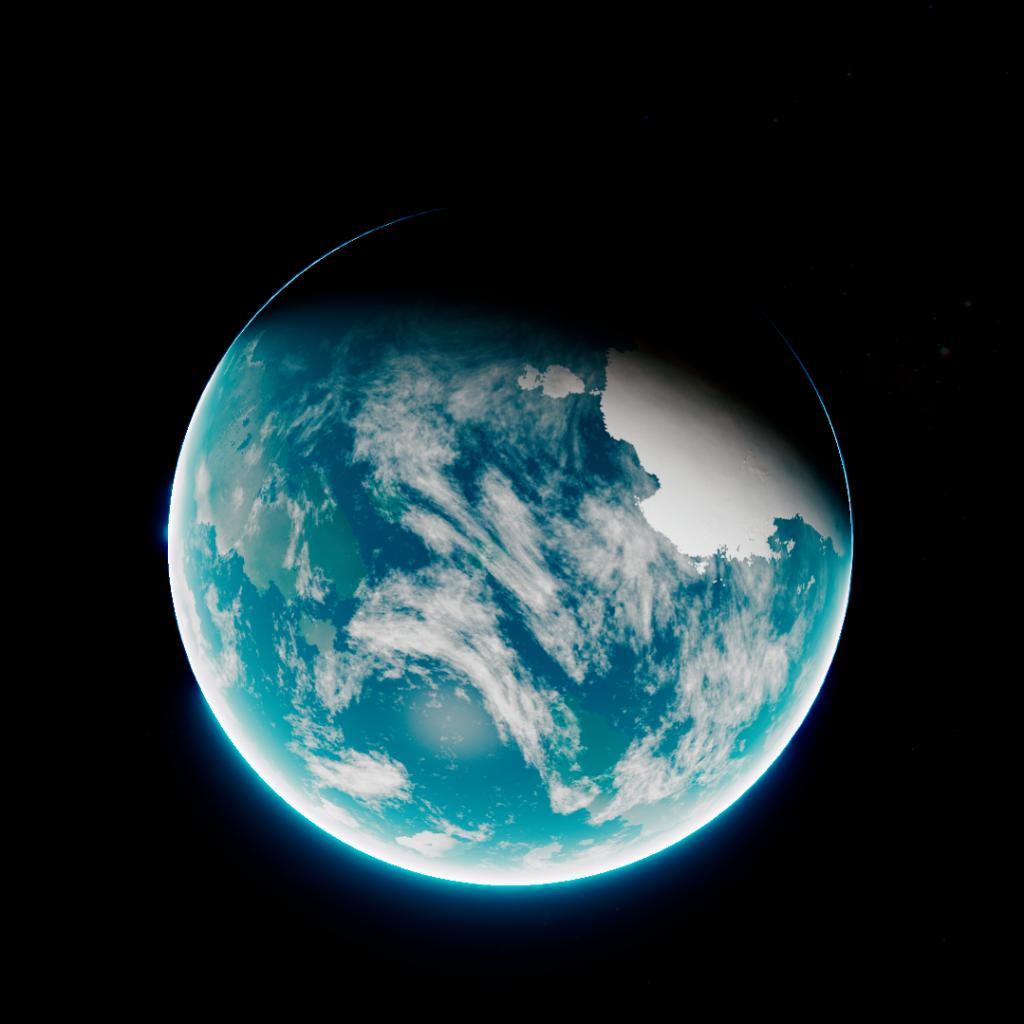
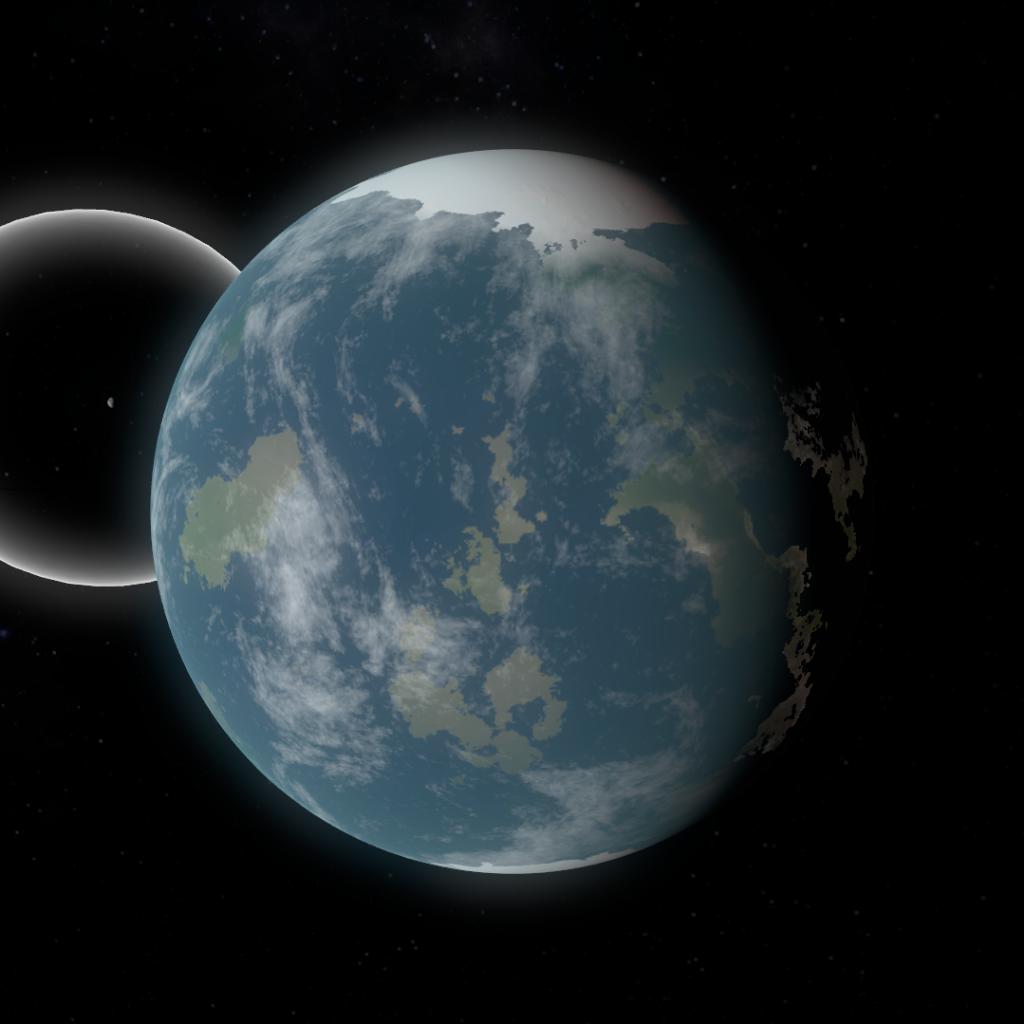
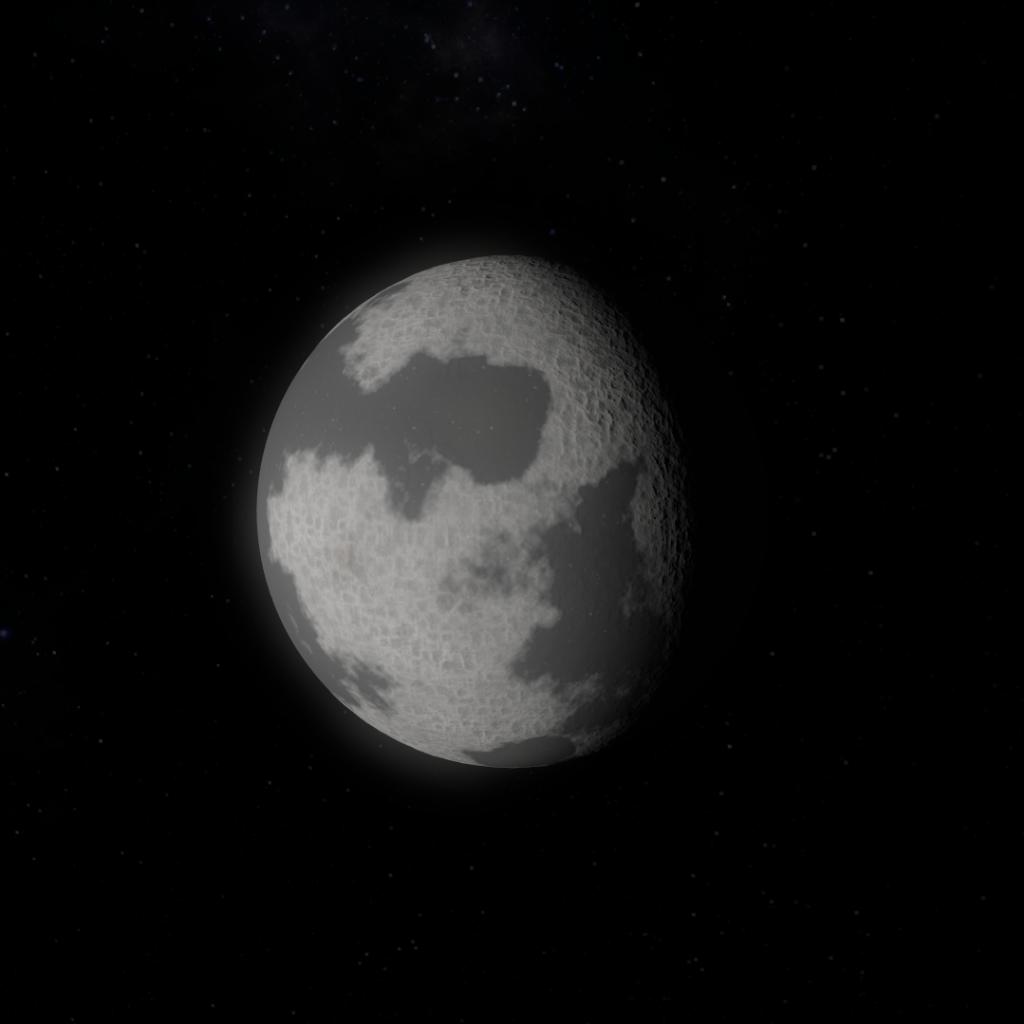
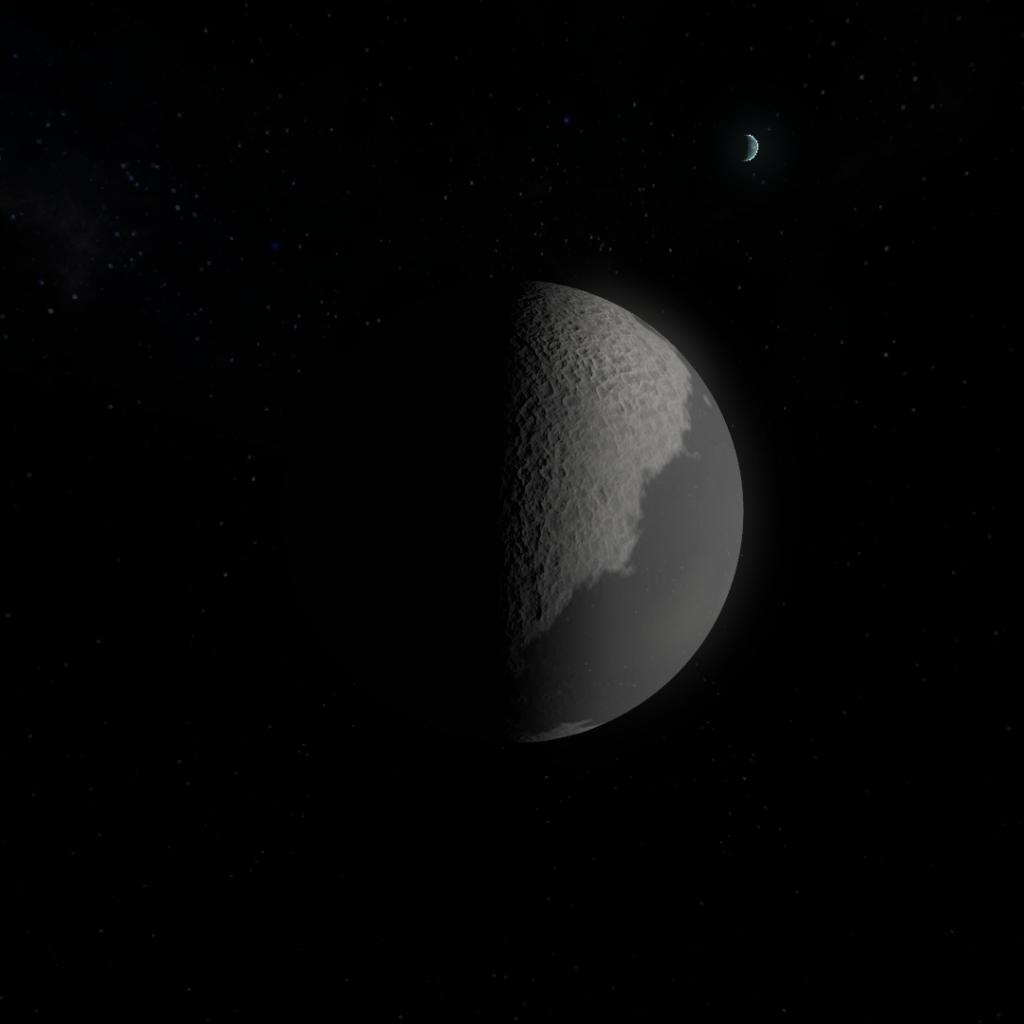
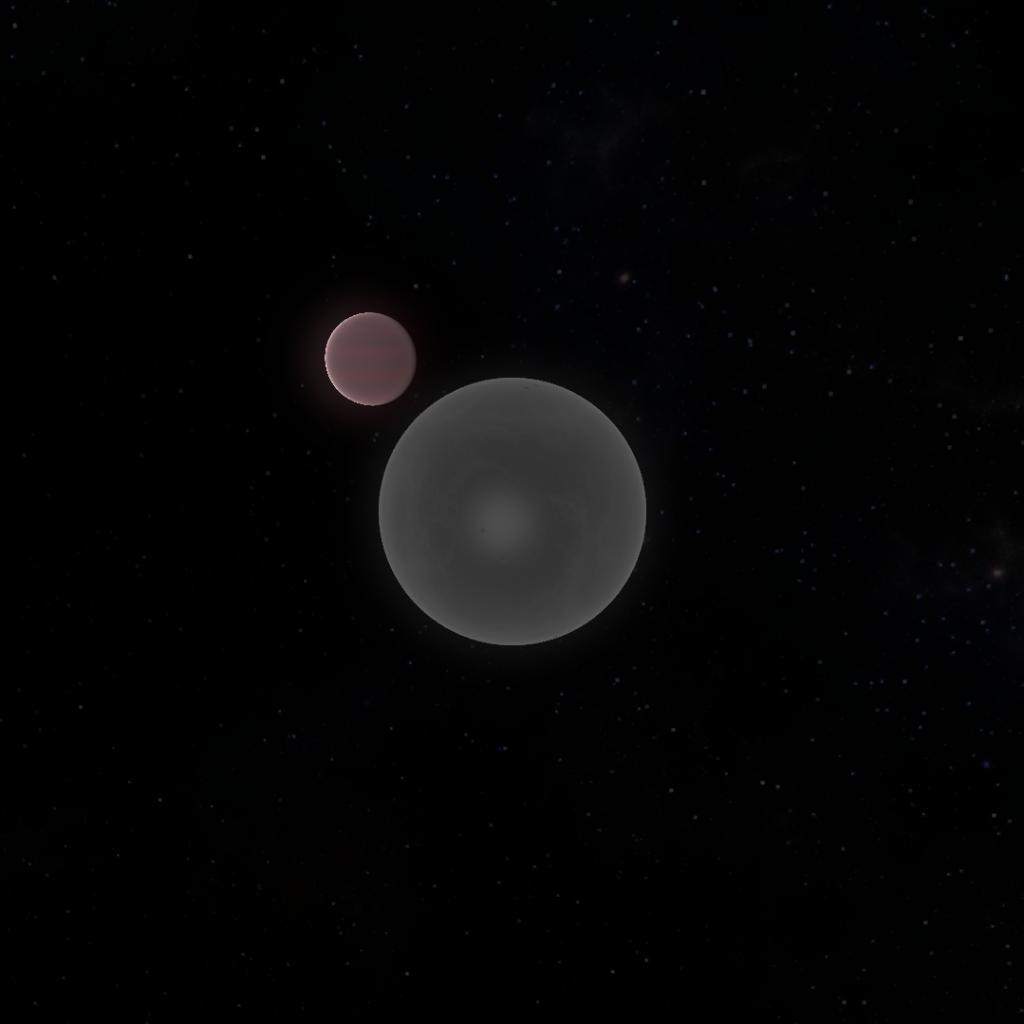
Nice, i like how these planets done